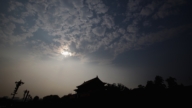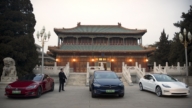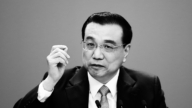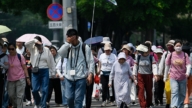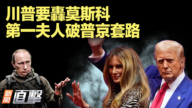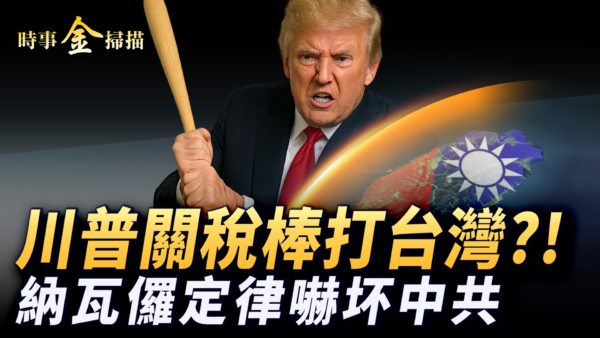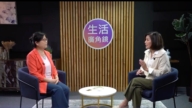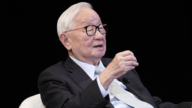【新唐人2012年6月16日讯】近来,中共官媒用各种方式宣传中共党内民主选举的成果,为中共十八大营造出民主气氛。另有中共官员反复撰文呼吁,在共产党内实行三权分立。又有消息透露,中共十八大要进行体制改革,目前党章修改工作正在紧密推进。种种体制改革风声让人悬念重重。一向独裁的中共愿意民主吗?开明派的主张,阻力有多大?利益集团的寡头们,对民主又存在多大的恐惧?下面一起去了解。
“中央党校”教授陈雪薇向媒体透露,今年下半年的十八大有望修改党章。陈雪薇指出,党章修改有两个内容值得期待:一是,能否将已经形成惯例的领导人任期写入党章;二是,如何扩大党内民主。
北京宪政学者陈永苗认为,这名党校教授可能是为权斗的其中一方发声,因为按照逻辑,如果真的修改党章的话,应该在十八大以后。陈永苗说,那时新政府为了维护垄断权力格局,也许修改党章。
陈永苗说,当今的中共领导们,彼此之间在利益上有着千丝万缕的联系,谁也不敢轻易惊动对方,他认为,中共内部不会主动进行政治体制改革。
陈永苗:“它现在已经是个寡头分赃体式,就是每一个人、每个寡头他有他自己的一块,就像一个地盘一样,谁都不会去碰对方的地盘。如果去碰对方的地盘的话,就会引起对方的反抗,他只是去维持、不断的去维持政权的存在。”
原“山东大学”教授孙文广表示,从目前中共的现状来看,并没有进行政改的迹象,他说,如果真想改的话,现在就可以做个样子出来,让习近平、汪洋、温家宝等人竞选总书记,每个人可以说出自己的治国方案。
孙文广2007年开始,以独立候选人身份参加济南市历城区人大代表选举,他说,中共的所谓民主选举,是上面先定好了人选,让下面走一下形式而已。
孙文广:“有人出来竞选的时候,他就用各种方式把你打压下去,甚至把你关在屋里,不让你去参加投票的会,国宝公安堵在校门,不让你到学校去演讲,写在墙上海报,公安来撕。”
刘因全说,在中共历史上,从毛泽东,邓小平到江泽民,一直都是老大说了算,而文化大革命、6.4、镇压法轮功等等人类罪恶,也正是这种黑社会体制造成的。
刘因全:“江泽民虽然没有毛泽东、邓小平那个时候的权威,但是江泽民还是用一些花招,用一些阴谋诡计来实现个人专政,比较典型的就是镇压法轮功这件事情,当时政治局常委的多数人是不同意的,但是江泽民在上面又是拍桌子又是发火,最后硬是逼着大家不得不同意他的意见。”
刘因全表示,党内民主是中共党内的开明派多年的愿望,但是光靠开明派,力量还不够。
他认为,除党内民主化,让党内的开明力量成长起来之外,彻底的解决还得从两方面入手。第一,必须彻底的修改党章,改变党的性质;第二,改变共产党的名字,这样才能和共产党历史上的罪恶切割开来,才能脱胎换骨获得新生。
Possible revision of Party Constitution during Congress, a necessary path said analysis
Recently, Chinese Communist Party’s (CCP) official media
are making propaganda for party’s democratic election,
creating a democratic atmosphere for the coming 18th Party
Congress. Some CCP officials wrote articles,
appealing for the separation of powers within CCP.
According to other information sources,
the 18th Party Congress will carry out reforms and
the Party Constitution is undergoing revision.
All this information about reforms keep the public in suspense.
Will the autocratic CCP adopt democracy?
How much opposition does the liberal faction face?
How much fear do the oligarchs have for democracy? Here is more information.
Chen Xuewei, Central Party School professor, told media
about the possible revision of the Party Constitution in the
18th party congress.
According to Chen Xuewei, there might be two major changes,
the presidents’ term limit issue and the expansion of democracy within the party.
Chen Yongmiao, Beijing constitutional scholar, said that very
likely this professor was speaking for one faction within the party.
To maintain the monopoly of power, a new government
usually revises the Party Constitution after the congress,
instead of during the congress, said Chen Yongmiao.
Chen Yongmiao said that CCP’s top-level officials have
countless interest connections with each other, and thus hold each other up.
He believes that CCP will not promote
political reform actively from within the party.
Chen Yongmiao said: “CCP is currently under a monopolistic
spoils mode.
Every oligarch has his own interest and territory,
which others dare not touch.
If one person infringed another’s interest, conflict will happen.
Therefore, the only thing they can do is to maintain the power.”
Sun Wenguang, former professor at Shandong University,
said that CCP’s current situation hasn’t shown any sign of political reforms.
If they really want to reform, actions can be taken
right now, said Sun.
For example, let Xi Jinping, Wang Yang, and Wen Jiabao
all run for the presidency and speak out their own policies.
Since 2007, Sun Wenguang has been participated in elections
for deputies of National People’s Congress in Licheng District, Ji’nan City as an independent candidate.
The higher level makes the choice and let inferior officials
go through the motions, and that is the so-called democratic election, said Sun.
Sun Wenguang said: “They suppress independent candidates
using all means.
They lock you at home so that you cannot attend
the voting assembly;
state security and public safety block the school gate
so that you cannot give speeches; and the police tear away posters on walls.”
Liu Yinquan, Chair, Social Democratic Party of China, said that in CCP’s history, the leaders such as
Mao Zedong, Deng Xiaoping, and Jiang Zemin always have the final say.
Crimes like the Cultural Revolution, June 4 Incident and
the persecution of Falun Gong are all results of this gang regime.
Liu Yinquan said: “Though without the absolute power like
Mao Zedong or Deng Xiaoping,
Jiang Zenmin realized his autocracy more by means and plots,
especially on the persecution of Falun Gong.
The majority of the Standing Committee of the
Political Bureau did not agree with him at that time,
but Jiang pounded tables and shouted, finally
forced others to agree with him.”
Liu Yinquan said that democracy is the long hope of party’s
liberal faction, but they don’t have enough power.
Liu Yinquan said: “On one hand, the liberal faction within
CCP should expand their team and power;
on the other, they should unit folk democratic force,
without which the liberal power cannot grow.
Belief groups like Falun Gong, and other dissidents,
liberal intellectuals should exert more pressure on CCP.”
But, Liu Yinquan said that the political reform should not be
confined to democracy within the party, the final solution lies in two other aspects.
Firstly, the Party Constitution should be revised completely
to change the party’s nature;
secondly, the party’s name should no longer be CCP,
in order to cut the connection with CCP’s evil history.



